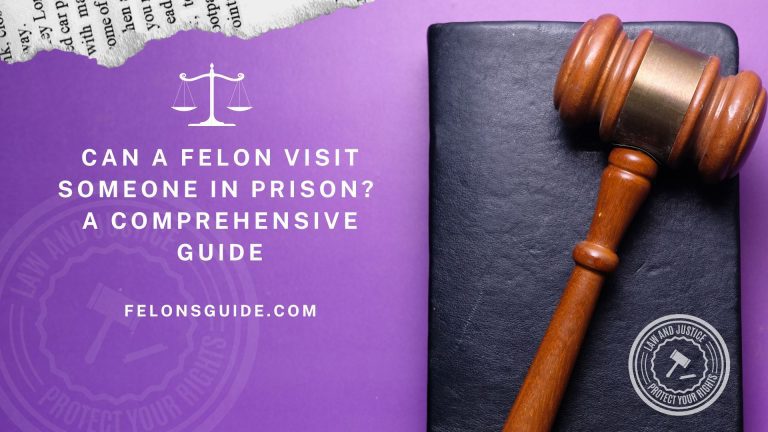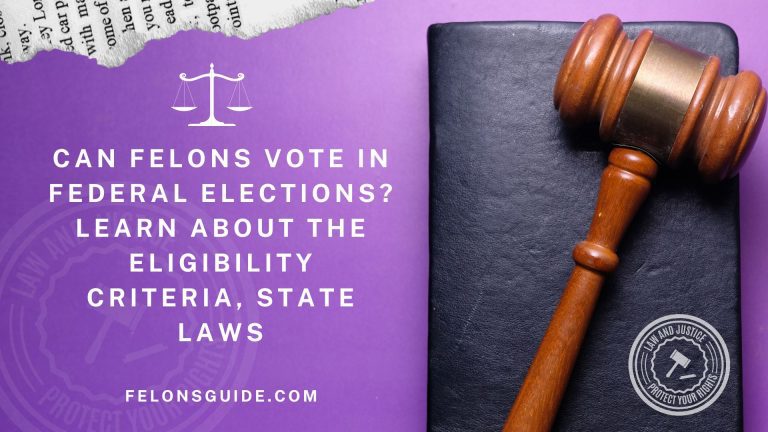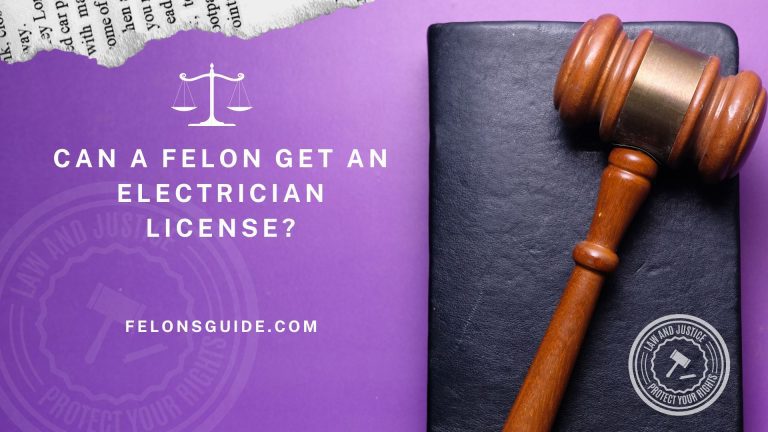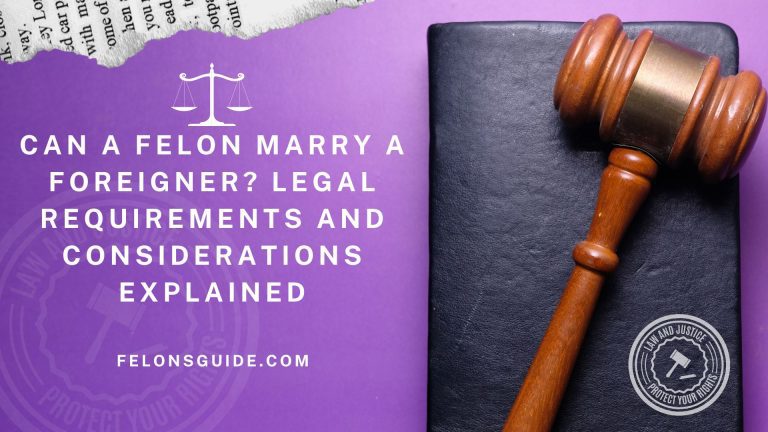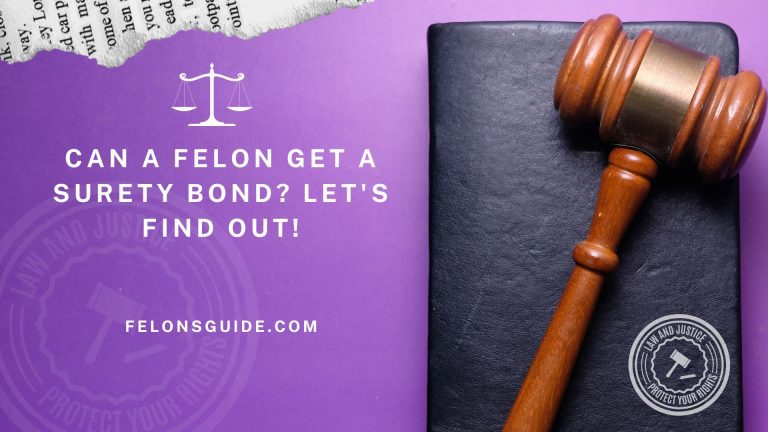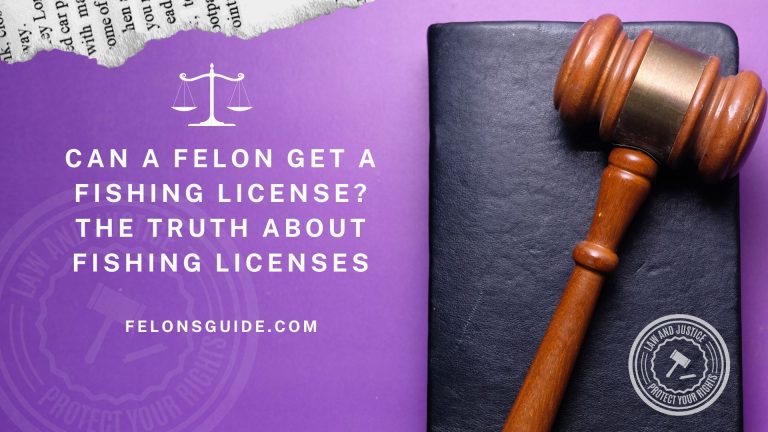Can a Convicted Felon Own Property
Can a convicted felon own property? This question may have a straightforward answer, but the legalities and limitations surrounding property ownership for felons can be complex and confusing. In this article, we will dive deeper into this topic and provide you with a comprehensive guide to help you understand the rights and challenges that convicted felons face when it comes to owning property.
Understanding the Terminology
Before we delve into the legal aspects of property ownership for felons, it’s important to clarify some terms that are often used in this context:
Felon: A person who has been convicted of a felony, which is a serious crime that is typically punishable by imprisonment for more than one year.
Property: Anything that can be owned or possessed, such as land, buildings, vehicles, or personal belongings.
Ownership: The legal right to possess, use, and dispose of the property.
Restrictions: Limitations or conditions imposed by law, regulation, or agreement that affect a person’s ability to own or use the property.
With these definitions in mind, let’s explore the main questions related to property ownership for convicted felons.
Can a felon own property?
The short answer is yes, a felon can own property. The right to own property is protected by the Constitution, and it cannot be taken away solely based on a person’s criminal record. However, there may be some restrictions and limitations that apply to felons who want to own property, depending on the nature of their crime and the state in which they reside.
For example, some states have laws that prohibit felons from owning certain types of firearms, and this restriction may also apply to other types of weapons or dangerous devices. Additionally, some states may have laws that restrict felons from owning or residing in certain types of housing, such as public housing or subsidized housing.
Can a felon rent or lease property?
Again, the answer is generally yes, but there may be some limitations and challenges for felons who want to rent or lease property. Landlords and property managers often conduct background checks on potential tenants, and a criminal record may make it harder for felons to pass these checks. Additionally, some landlords may have policies that specifically exclude felons from renting their properties.
If a felon is able to secure a rental or lease agreement, they may still face challenges such as higher security deposits, higher rent, or limited rental options. It’s important for felons to be upfront and honest about their criminal record when applying for housing and to seek assistance from social service agencies or nonprofit organizations that can help them find suitable housing.
Also Read: Can a Felon Live with Someone on Section 8? Exploring the Rules and Regulations
Can a felon inherit property?
Yes, a felon can inherit property. Inheritance is not affected by a person’s criminal record, and felons have the same inheritance rights as anyone else. However, if the property is subject to any legal restrictions or conditions, such as a trust or a will that specifies certain uses or limitations on the property, the felon may be subject to those restrictions as well.
Can a felon get a mortgage?
It is possible for a felon to get a mortgage, but it may be more difficult than for someone with a clean criminal record. Felons may face higher interest rates, stricter lending requirements, and other challenges when attempting to secure a mortgage. Additionally, some lenders may have policies that specifically exclude felons from obtaining a mortgage. It’s important for felons to shop around and compare different lenders and loan options to find the best fit for their financial situation.
Also Read: Can a Felon Carry a Knife? Understanding the Law
Conclusion:
The question of whether a convicted felon can own property is not a simple yes or no answer. While the Constitution protects the right to own property, there may be restrictions and limitations that apply to felons, depending on their crime and the state in which they reside. Felons may face challenges when it comes to renting, leasing, and securing a mortgage, but these obstacles are not insurmountable. It’s important for felons to be aware of their rights and limitations when it comes to property ownership and to seek guidance from legal professionals, social service agencies, or nonprofit organizations that can help them navigate the legal system and access housing resources.
Frequently Asked Questions (FAQs)
Q: Can a felon own a business property?
A: Yes, a felon can own a business property, but they may face some challenges when it comes to obtaining financing or obtaining licenses and permits for their business. Additionally, some industries may have specific regulations or restrictions that limit the involvement of felons.
Q: Can a felon own a vacation home?
A: Yes, a felon can own a vacation home, as long as they can afford it and the property is not subject to any legal restrictions or conditions that limit the use of the property. However, felons may face challenges when it comes to securing financing or insurance for the property.
Q: Can a felon own rental property?
A: Yes, a felon can own rental property, but they may face challenges when it comes to obtaining financing or managing the property. Additionally, some states may have laws that restrict felons from owning or managing certain types of rental properties, such as public housing or subsidized housing.
Q: Can a felon be a landlord?
A: Yes, a felon can be a landlord, but they may face challenges when it comes to obtaining a rental license or passing a background check. Additionally, some states may have laws that restrict felons from owning or managing certain types of rental properties, as mentioned above.
Q: Can a felon be denied property ownership based on their race, gender, or another protected status?
A: No, it is illegal to deny someone property ownership based on their race, gender, or another protected status under federal and state fair housing laws. However, felons may face discrimination based on their criminal record, which is not a protected status.
